Let me begin with a little background. I have lived in the St. Louis area most of my life. I live less than 20 minutes from Ferguson. I drive within a mile of the Ferguson protest site every couple of weeks as I travel to/from Illinois. I used to buy Krispy Kreme donuts at a store on West Florissant Rd, the street where the problems have been. I used to work a couple of miles from there. I know the area, I know the demographics, I have friends and family who have lived there. I am well familiar with this area and some of the issues that exist there.
The events in Ferguson have caused upheaval in the St. Louis area. The night my wife and I returned from the Redstate Gathering was the night of the initial problems in Ferguson. As we left the parking garage at the airport and drove along the interstate to our home, we passed at least a dozen police cars racing towards Ferguson, lights and sirens going. The next Thursday night, after one of the worse nights of protests, we were at one of the fanciest shopping malls in the area in one of the wealthiest parts of the area, 20 miles from Ferguson. And there were stores in that mall that were closed due to fears of looting. Another mall had a large fight that led to early closing due to fears of looting there….again, many miles from Ferguson. This situation has impacted our entire metro area. People are on edge.
One of our church elders, a black man who is a teacher in a local Christian school located in one of the wealthiest suburbs in St. Louis, used to be a youth pastor in Ferguson. He addressed the church last Sunday and talked about his experiences in being unnecessarily rousted by police and how he has to explain to his young son every time a racially-focused event happens about why it is happening and to reassure him. I’ve heard stories from others as well. The problems they describe are real…while I’m hearing anecdotal reports from acquaintances, eventually enough anecdote becomes data and reflects a trend.
In addition to the story from my own church, two prominent black pastors published accounts of their own personal experiences as a result of the Ferguson situation. The first is from Thabiti Anyabwile, a pastor affiliated with the Gospel Coalition organization. In his article “Coming (Back) to America: My One Fear”, he writes:
When my wife and I announced we would be moving back to the States to plant a church in Southeast DC, we met three reactions. People who loved us over these past eight years and appreciated our ministry expressed their love and sadness that we were leaving Cayman. Those same people and many others then quickly sent us tremendous amounts of encouragement, prayer and practical help. Then there were those who had a question. They asked, “Are you afraid?” or “Do you have any fears?”
My elders in Cayman asked that question. The elders here at CHBC asked that question. A few individuals asked that question. And some people have worn their concern on their faces.
When asked the question, I’d usually pause. Not because I didn’t have an answer, but because some fears feel too real when you give them words. So I’d pause. Then I’d say two things: “Truthfully, the Lord has kept us from any fears that we can discern about planting the church or living in Southeast. If I have a fear it would be one thing: bringing my son Titus to the United States. He’s so tender and innocent and the States can be very hard on Black boys.”
That’s my one fear. This country destroying my boy. Ferguson is my fear. I could be the black dad approaching a white sheet stained with his son’s blood. I could be the husband holding his wife, rocking in anguish, terrorized by the ‘what happeneds’ and the ‘how could theys,’ unable to console his wife, his wife who works so hard to make her son a “momma’s boy” with too many hugs, bedtime stories, presents for nothing, and an overflowing delight in everything he does. How do you comfort a woman who feels like a part of her soul was ripped out her chest?
Like my elder friend, this pastor fears for his son and must discuss the nature of these events with them because of the experiences of many black boys in the United States…and so they will not become another casualty.
Another black pastor, Leonce Crump, has preached for my church. In this Christianity today article, he relates his thoughts and experiences:
I am 6’5”. I weigh 270 pounds. I’ve been called imposing. The police have stopped me, both walking and driving, nearly once a year since I was 15 years old. Though I have been asked to leave my vehicle, thrown to the ground and against my vehicle, interrogated, frisked, and cuffed on these occasions, I’ve not been cited. Not once.
Until you feel the humiliation of this moment, particularly as a “decent, civilized, educated black,”—Yes, that’s an actual quote of how someone referred to me once, behind my back of course—then you cannot say that it is an anomaly. You cannot say that someone was “just doing his or her job.”
A Personal Story
The most troubling of these incidents took place just a few years ago in Texas. My wife and I were driving to my childhood home of Louisiana. We were pulled over, but weren’t speeding. I wasn’t driving erratically. I wasn’t intoxicated. And it was broad daylight.
The two officers approached our vehicle, and when the lead saw me, one immediately placed his hand on his firearm. My wife was visibly nervous. We’d just been joking sarcastically about hoping we didn’t get pulled over in Texas for being an interracial couple. Then, in a flash, the joke became reality.
The officer asked me to step out of my vehicle. I refused. By this time I’d earned an M.S. in Criminal Justice, my focus in this degree was case law and judiciary process, which of course included an extensive study of policing histories and practices. So yes, I refused to get out of the car. But my wife pleaded, and the officer demanded. So, I complied.
The officer immediately grabbed me and began asking me where I was coming from, where I was going, and if I had anything in my vehicle of “concern.” Meanwhile, the other officer interrogated my wife, and asked her if she was being held against her will. Really? Riding in the front seat, with a tri-racial child in the back. The lead officer, hand still on his firearm, began to try and frisk me. Again, I refused. The law says I should comply (Pennsylvania v. Mimms) and step out of the vehicle. The law does not allow for illegal search of my person or property. I stated this to him. He became enraged, breathing threats, and calling me “boy.” It took the other officer to calm him down. Finally, with a lack of any justifiable reason to hold us, they let us go. I’ve never been so angry. My wife never so humiliated.
These experiences are not mere anecdote; this is systemic.
These events and the stories I’ve heard have given me a very different, very personal point of view on what has happened in Ferguson. And I have reflected this in my recent comments here at Redstate. Things are not as they may seem to be from the outside looking in.
There is a race problem in the United States. You can deny it, but it is there. The Ferguson incident has surfaced it once again. Pew did a survey after the Brown killing, and found a vast disparity in how blacks and whites view the situation in Ferguson, and I believe it also reflects on the overall attitude about race in this country.
The new national survey by the Pew Research Center, conducted Aug. 14-17 among 1,000 adults, finds that the public overall is divided over whether Brown’s shooting raises important issues about race or whether the issue of race is getting more attention than it deserves: 44% think the case does raise important issues about race that require discussion, while 40% say the issue of race is getting more attention than it deserves.
By about four-to-one (80% to 18%), African Americans say the shooting in Ferguson raises important issues about race that merit discussion. By contrast, whites, by 47% to 37%, say the issue of race is getting more attention than it deserves.
Fully 65% of African Americans say the police have gone too far in responding to the shooting’s aftermath. Whites are divided: 33% say the police have gone too far, 32% say the police response has been about right, while 35% offer no response.
Whites also are nearly three times as likely as blacks to express at least a fair amount of confidence in the investigations into the shooting. About half of whites (52%) say they have a great deal or fair amount of confidence in the investigations, compared with just 18% of blacks. Roughly three-quarters of blacks (76%) have little or no confidence in the investigations, with 45% saying they have no confidence at all.
I don’t believe this is surprising. I find the attitude that “there is no more racism” is prevalent in the white community and especially among conservative whites. I believe the evidence is overwhelming that this is not the case, that those in the black community who are expressing concerns are doing so because there is indeed something to be concerned about.
As Crump states, this IS systemic, and it must be addressed. The killing of Michael Brown is not a standalone, isolated incident in Ferguson. It is a catalyst that set off a reaction to perceived racial inequity, police harassment, and (relevant to the Brown killing) a belief that Mr. Brown was wrongfully killed by the Ferguson police officer – and as a result of all of these, the protests occurred. The residents are responding not just to the killing, but to a long-festering situation. Their protests are the way that they know to respond to their perception of a racial imbalance and bias in their community, their police force and their government. While virtually no one but the most militant black extremists believe that looting and violence is an acceptable reaction, the protests by community members (and yes, I get that there were people in the protests that were not community members, but they were the minority) are understandable, but they really aren’t all that productive. But what would be?
Well-known race hustler Al Sharpton predictably appeared on the scene in Ferguson shortly after the events and protests unfolded. Sharpton gave a speech last Sunday where he pointed out the horrendous voter turnout in the last several local elections. Bloomberg reported:
Voter turnout in the past three city elections was 12.3 percent, 11.7 percent and 8.9 percent, respectively, according to the St. Louis County Elections Board. There have been few black candidates, even as white elected officials tried to recruit them, Jones said.
“Some of y’all that’s mad right now, weren’t mad three weeks ago for Election Day,” civil-rights activist Al Sharpton said at an Aug. 17 rally in Ferguson. “Y’all got to start voting and showing up. Twelve percent turnout is an insult to your children.”
Besides a lack of voter participation, the dramatic demographic transition in Ferguson has outpaced change in the political structure, said Colin Gordon, a history professor at the University of Iowa in Iowa City who has mapped the shifts in the region.
Note Sharpton’s quote. He’s right. Yes, the broken clock has struck. Al Sharpton got something right. Ferguson residents should have greater participation in the political process. The response to a watershed event such as the Brown killing should not be riots. If the residents truly believe that there is an issue with the racial balance on the police force or the city council or in the mayor’s office, they should do something about it, and that something is to vote.
There was an uproar on the Right in response to the appearance of voter registration tents near the protest site. My colleague Dan McLaughlin mentioned it in his diary on Ferguson. As I see it, the voter registration tent was not a bad thing. The anger of the protesters should be redirected to voting instead of rioting. If the residents want change, that is how to do it. Some, including Rush Limbaugh, have claimed the NAACP and others are using this as a way to sway the midterms. Was it? Perhaps. But that doesn’t make it necessarily wrong.
We need to shake off the non-stop cynicism we have about situations like this. There is nothing wrong with encouraging people who believe they are misrepresented to vote more. I have no issue with this. It has worked in other parts of the St. Louis area. From the Bloomberg article:
The system can change, said Wanda Fairley, one of four blacks on the six-member board of aldermen in the St. Louis County suburb of Vinita Park, a community of 1,900 that’s about 65 percent black.
Fairley, 60, won her first try at elective office in 2009, defeating a white incumbent, she said. The town’s first black mayor won office in 2010.
“You’ve got to vote,” Fairley said. “You’ve got to go to the meetings. You’ve got to be heard.”
Incidentally, this is precisely the message that conservatives deliver to our own. This is the kind of message that we deliver here on Redstate – if you disagree with what’s going on in DC, get out and vote to change it. And that is just what the residents of Ferguson need to do.
As Dan McLaughlin stated:
Personally, I have no problem with voter registration drives, or with politicizing tragic events in general: life and death issues are the most serious stuff of politics, after all. It’s fair to raise again any number of related and relevant issues.
I agree. It’s not inherently bad to a) hold a voter registration drive, and b) to politicize an event. Unlike most of the critics, I don’t necessarily have an issue with the timing, as there was the potential to deflect the protests by directing the anger into the concept of change through political process. Unfortunately, the sensitivities of conservatives don’t allow most of us to think of it as anything but an attempt to influence national politics. In this case, we need to think beyond that. If the black residents of Ferguson believe they are misrepresented, they should vote to change it.
But…they should also be warned: racial equality is not necessarily the answer. Good policies must also follow. Will that happen if Ferguson elects a racially-representative city leadership and changes the makeup of the police force? Who knows? It all depends on who is hired and elected and their ideology. If they elect someone with the policy skill of, say, Missouri’s Democrat Governor Jay Nixon, who screwed up every single decision he made surrounding Ferguson, then nothing changes. If they elect a Ron Johnson type (the Missouri State Highway Patrol captain who is a north St. Louis county resident and who came in and changed the law enforcement approach during the protests)…someone who knows the community and takes a practical, knowledgable approach to fixing things, they might see some success. All we must do is look across the river to East St. Louis, IL, where the city leadership and law enforcement certainly represents the demographics of the city…and where things are just as big of a mess as they’ve ever been. Racial balance must be accompanied by smart decisions. Unfortunately, if the citizens elect hard-left politicians, chances are that things in the city of Ferguson won’t improve.
The unfortunate part of all this is that Barack Obama was elected based on a similar set of sentiments – change the racial composition of government and race issues will be solved. The vast majority (95+%) of blacks voted for Obama. And he came into office espousing radical left-wing philosophy and has governed accordingly. And his policies failed. The First Black President has not repaired race relations. Rather, due to the constant race-card-playing by Obama and his administration and party, race relations are even worse than they started after his inauguration. The cynicism that many of us on the Right feel when these topics arise is undoubtedly due in large part to Barack Obama and his abuse of the race issue.
But despite all that, we should be open to the discussion. We should listen respectfully, consider the concerns of the black community, and encourage healthy engagement in the political process, whether it be voter registration and participation in elections or other engagement with government. And we as conservatives need to take the chip off OUR shoulders and stop refusing to consider that there is an important message in what the Ferguson protests are saying – there is a systemic race issue, both in Ferguson and in the nation, and something should be done to address it. What that is remains to be seen, but it does not have to compromise our values we hold as conservatives.

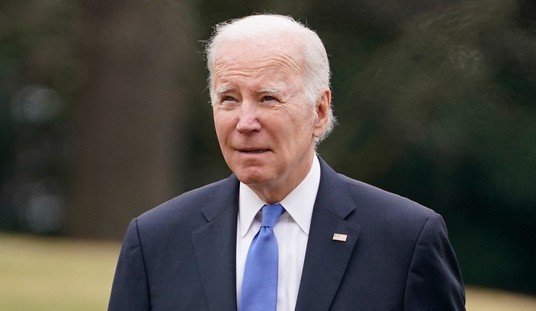

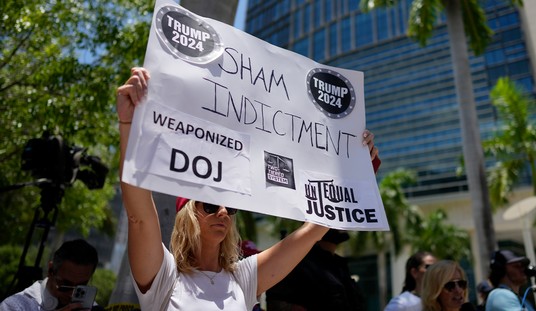
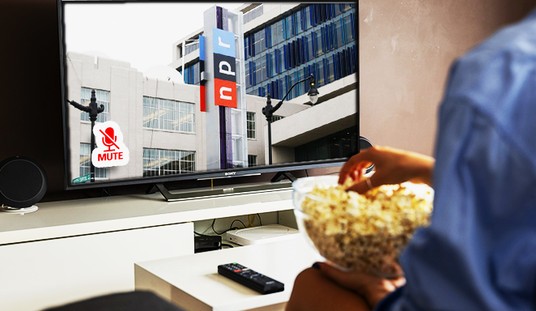

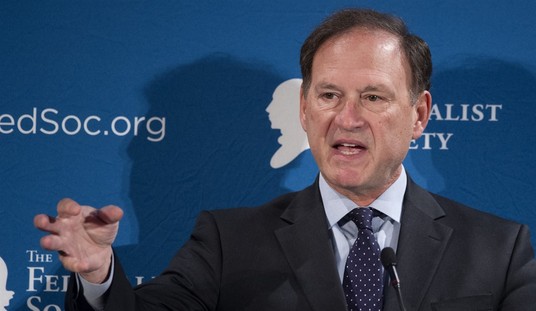


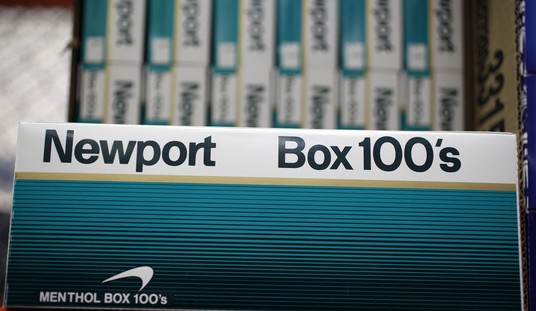
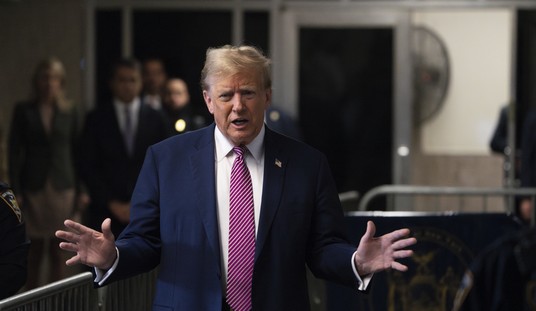
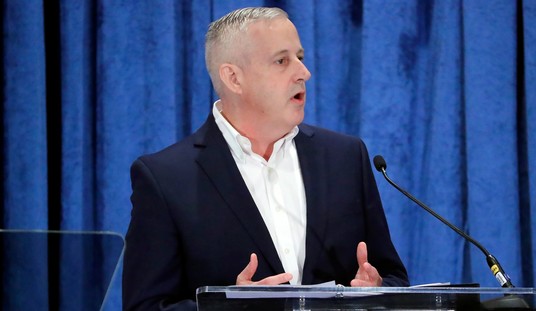
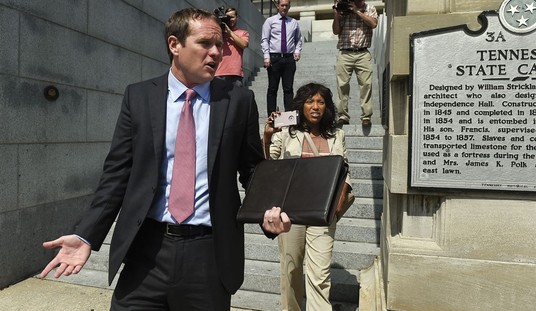

Join the conversation as a VIP Member